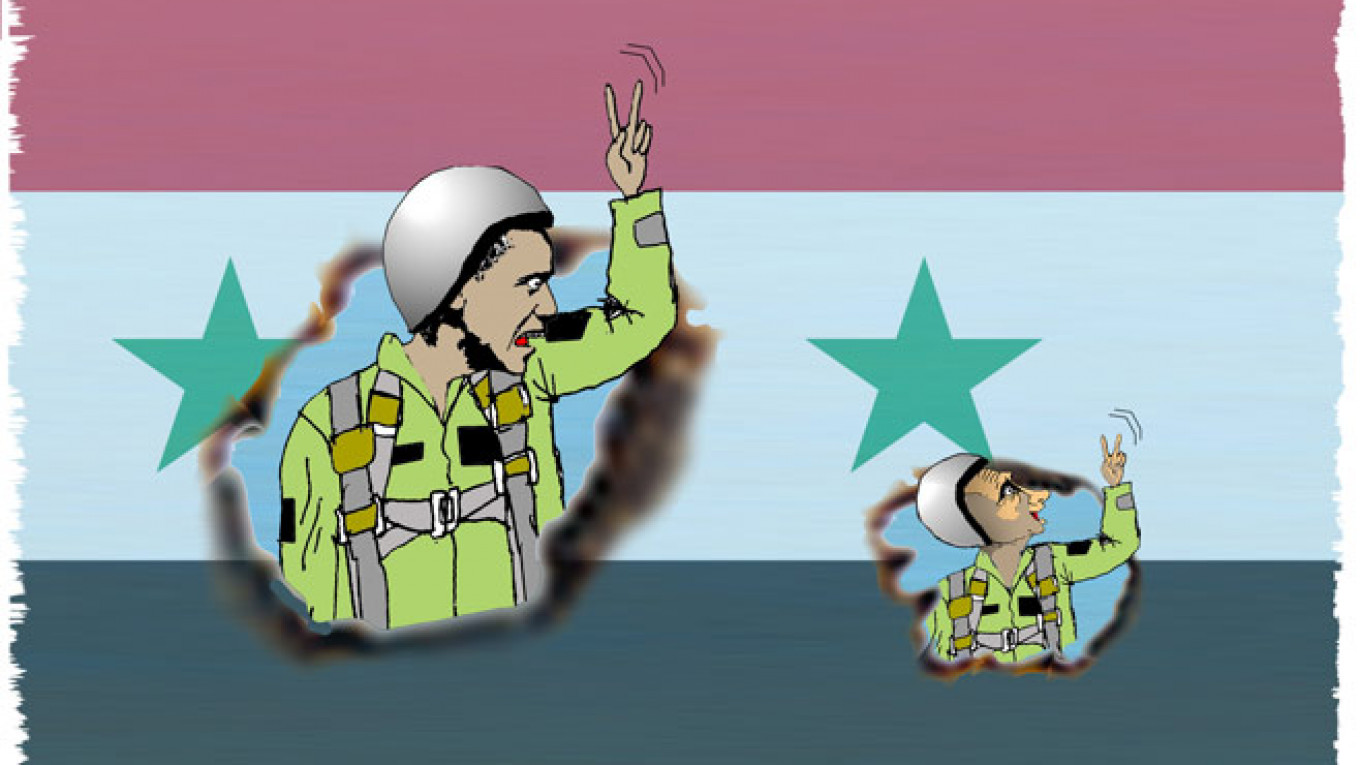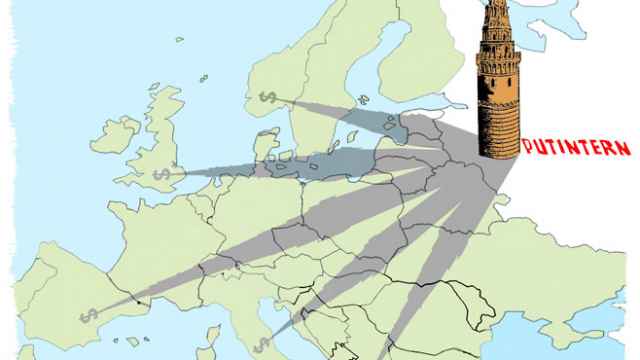While at home, President Vladimir Putin is the world-bestriding colossus, wise tsar and benevolent father of the nation, abroad he is once again facing a familiar vilification, as warmonger, kleptocrat and tyrant. Yes, corruption is deeply embedded in Russia's economic and political systems, and the Kremlin regards military force as an instrument of national interest. But the West needs to avoid simple and misleading stereotypes if it is to construct effective policies to deal with Russia, especially when it comes to its Syrian gambit.
Of course, Russia's involvement in Syria embarrassed above all Washington. So far Russia's air strikes have established Moscow's claims to be taken seriously as a global power, and done so in a way demonstrating not just military power but also ruthless will.
But Western complaints about Russian actions — above all Putin's — also reveal a dangerous hypocrisy.
"Russia has no mandate to be in Syria." However unpleasant, Bashar Assad's is still the internationally recognized government of Syria — with an embassy in Washington — and they invited Russian assistance. If anything it is Turkey, the U.S. and the other belligerents who actually have no mandate, and it would be a stretch to portray their actions as directly humanitarian.
To be sure, if the Assad regime fell it might be replaced by one less brutal and more legitimate. But then again, experiences of other military regime changes in North Africa and the Middle East suggest that the result could just as easily be chaos and extremist terror.
"The Russians are bombing the 'wrong' rebels." Apart from the fact that many of the "moderate rebels" touted as Syria's great hope are not that moderate, Moscow makes no bones about the fact that it is trying to preserve the Assad regime, one of its few allies. Islamic State forces are more heavily concentrated in the northeast of the country, the regime in the west and the south. No wonder most of the air strikes target the rebels posing a direct and immediate threat to Damascus.
"Moscow is acting 'dangerously,' potentially bringing Russian and Western jets into close proximity." Yes, there is a faint risk, especially as the Russians are more aggressive than Syrian pilots. For example, even if their incursions into Turkish airspace were indeed accidental, as they claimed, then they certainly must have been pretty close for such a mistake to happen. But given that U.S. and allied aircraft have less legal right to be in Syrian airspace, is the onus not on them to "deconflict"?
Of course the Russians are in Syria for the most self-interested of reasons, not to protect Syrian civilians, nor primarily an ally, but to distract a domestic audience from stalemate in the Donbass and force the West to deal with them. The Syrian regime is brutal to the point of evil, and just because the Islamic State may be worse, Putin has no serious moral justification.
But since when has self-interest been a novelty in geopolitics?
How does fueling a lengthy and vicious proxy war against both Assad and the Islamic State help ordinary Syrians, though, especially when so many of the West's allies in this campaign, from Turkey to Saudi Arabia, have serious human rights problems of their own?
This is not simple "whataboutism," that classic trick of deflecting criticism through raising the other side's real or alleged flaws. Rather it is to note that Washington is currently seeking to have its cake and eat it. It can choose to base its foreign policy on strict moral principles or geopolitical pragmatism.
At present, it seems happy to act pragmatically but think morally. Thus it genuinely considers Putin not simply an antagonist, but an immoral one.
This is dangerous and foolish. Just as Putin's Russia cannot simply be written off as a kleptocracy — roads are still being built, universities funded, and so forth, even while some plunder — so too it is not some uniquely aggressive "rogue state." Castigating it on moral grounds, without behaving in an unimpeachably moral way, is simply going to alienate Moscow, undermine Western credibility, and create a wholly false series of assumptions on which to base policy.
The uncomfortable truth is that in Syria, as in so many other ways, Putin is simply ruthlessly exploiting and expanding precedents already set by the West.
Mark Galeotti is professor of global affairs at New York University.
A Message from The Moscow Times:
Dear readers,
We are facing unprecedented challenges. Russia's Prosecutor General's Office has designated The Moscow Times as an "undesirable" organization, criminalizing our work and putting our staff at risk of prosecution. This follows our earlier unjust labeling as a "foreign agent."
These actions are direct attempts to silence independent journalism in Russia. The authorities claim our work "discredits the decisions of the Russian leadership." We see things differently: we strive to provide accurate, unbiased reporting on Russia.
We, the journalists of The Moscow Times, refuse to be silenced. But to continue our work, we need your help.
Your support, no matter how small, makes a world of difference. If you can, please support us monthly starting from just $2. It's quick to set up, and every contribution makes a significant impact.
By supporting The Moscow Times, you're defending open, independent journalism in the face of repression. Thank you for standing with us.
Remind me later.








